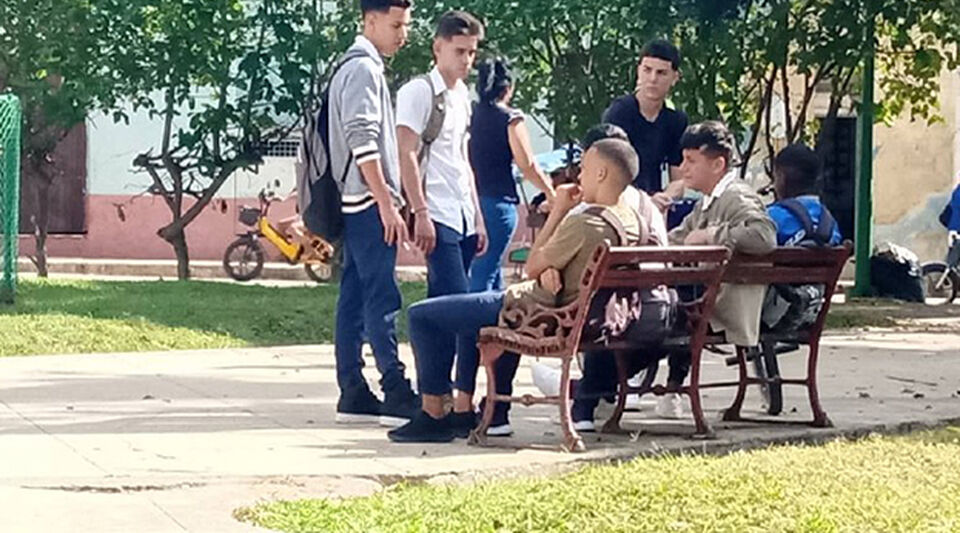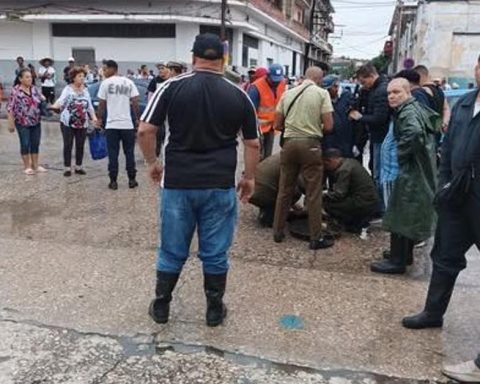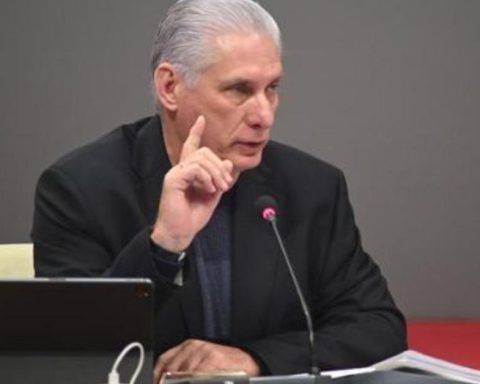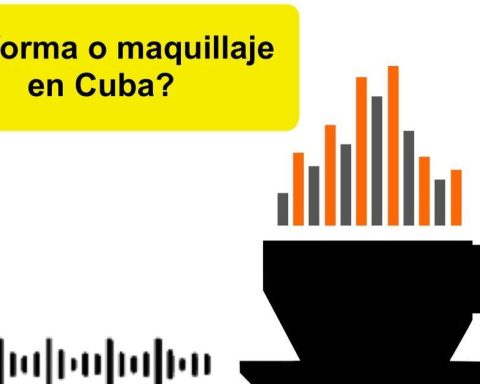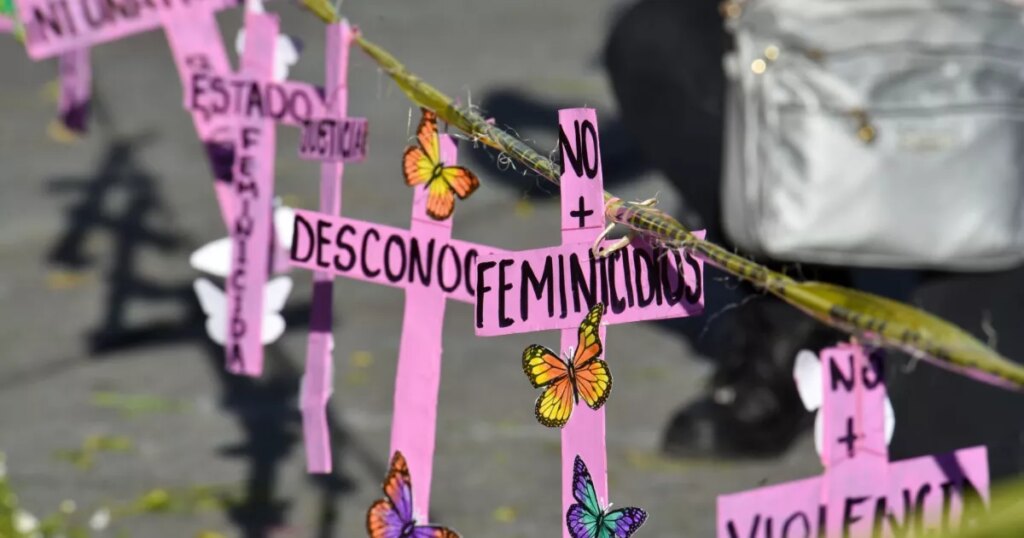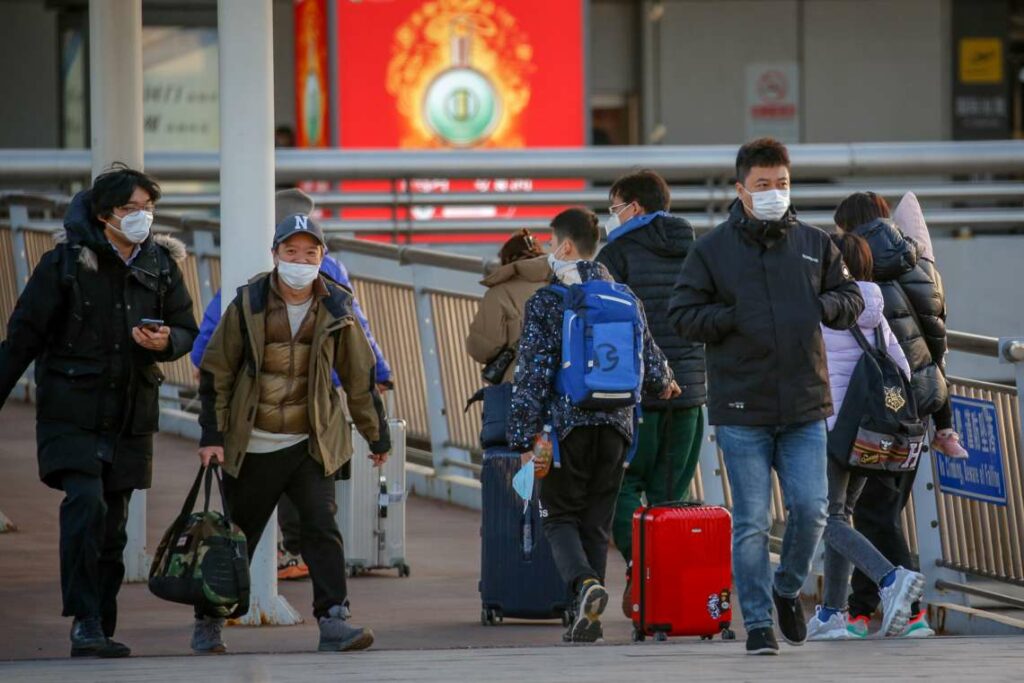Almost all of their friends have left, but Javier and Érica, two young people from Santa Clara, are still in Cuba. Leaving the country is almost inevitable. With her economic situation, having children on the Island is not an option. Besides, at twenty-five years old, where are they going to find a decent job, a house or a less hostile environment?
A few weeks ago, after they had raised enough money, they decided to celebrate their courtship anniversary at the Conuco Grill restaurant. Conuco Grill’s barbecues and its Creole atmosphere have become famous in Santa Clara. Javier and Érica reserved a table and ordered a beef steak, salad, rice, and beer. When they started to eat, the blackout came.
The owner, to alleviate the frustration of his customers, lit candles on each table. “The service was great, and we felt very good with the treatment and the food in the restaurant, but the blackout put an end to the magic of the night,” Javier told this newspaper. “One tries not to unload the indignation on the worker, nor on the owner, who are not to blame, but rather those above“.
However, regrets Javier, the power cut did not affect the account in the slightest: the couple ended up paying 1,360 pesos in full. After eating, the owner of Conuco Grill explained that intermittent blackouts are now common and the impact on customers is brutal. He has thought about buying a power generation plant, but the restaurant still does not produce enough profit to make that investment.
More than a year after founding Conuco Grill, the only option to get around the problem is to play with the blackout schedule published by the Unión Eléctrica in the province. But those data, he assures him, are not reliable either.
Finally they manage to board a truck and leave Taguayabón behind: barely lit, the town spends the night in sepulchral stillness. Nobody has money to organize a party
Forty kilometers from Santa Clara, in Taguayabón, a group of young people around the age of Javier and Érica are trying to decide which town they will go to hang out. If they manage to “catch” a bus that will take them to Remedios or Caibarién, they will be able to loiter in the colonial streets or to download on the boardwalk, facing the sea. However, the normal thing is that they have to settle for going to Camajuaní, from where they sometimes have to walk back.
Finally they manage to board a truck and leave Taguayabón behind: barely lit, the town spends the night in sepulchral stillness. No one has money to organize a party, roast a pig or simply share a bottle of rum. As for the boys, the normal thing is to meet on a bench on the squalid boulevard, on top of the bridge, or wait for music to be put on in the social circle.
The truck leaves them on Calle Independencia, in front of a movie theater converted into a warehouse and rubbish dump for the town. They decide to share the cost of a couple of bottles of rum, not too expensive, and look for a free bench near the park gazebo. They are heard singing, between drinks, until the end of the morning.
Michel, one of these young people, arrived at the village nightclub on Saturday night and found the blackout. “It’s been two hours now,” the local workers explained to them. Someone suggested going to the gazebo and said that he had a speaker, a portable speaker to which to connect the phone, and animate the night themselves. Michel himself collected 300 pesos from each member of the group and bought a bottle of Havana Club and an energy drink –Tigón– to mix it with.
Taking small sips from the plastic cups, the youngsters began to confess how upset they felt. One of them said that his grandmother, named Josefa, wanted to celebrate her 19th birthday when she was, like that Saturday, on leave from Military Service. “He went to buy some malts and some beers,” the boy recounted, “but in the only stores open, the ones on the boulevard, there was no electricity. He waited a bit, the light came on and he bought things… but when he got to his house also touched blackout”.
Another of the boys, David, recounted that his father had taken his little brother to the Arcoíris park in Santa Clara, and when he arrived the power had gone out. The boy waited for the gadgets to come back to life, but to no avail. “All he could do was walk and walk,” David lamented.
“The worst thing is that we have stopped worrying about our dreams to dedicate ourselves to surviving,” says Jaime, a young waiter from Santa Clara.
It is better to return to Taguayabón before midnight. Otherwise, you must walk along the road that connects Camajuaní with Remedios, completely in the dark.
The situation in Camajuaní –which is repeated in all the municipalities of Villa Clara– is deplorable. Years ago there were at least six restaurants, a nightclub, some bars and cafeterias, all from the State. Now they are large houses almost abandoned, without offers or about to be remodeled to dedicate them to the little tourism that there is.
Once repaired, they will be out of the reach of the common citizen and even more so of young people, who see their expenses doubled if they want to spend time with their partner, and whose parents cannot afford additional luxuries.
“The worst thing is that we have stopped worrying about our dreams to dedicate ourselves to surviving,” says Jaime, a young waiter from Santa Clara. Jaime considers himself stuck, bored with everything, stuck in a routine and underpaid, he feels that he is not moving forward in life. “No land in sight, no destination,” he quips.
A frustrating situation, Jaime argues, is that the elderly think that the current generation is “badly accustomed”, because they criticize the Government and want to leave the country instead of “resisting”, as they were taught. It is usual that they “torment” them with stories of the Special Period and that they repeat the well-known phrase: “What are you complaining about if you live better than us in those times?”
A frustrating situation, Jaime argues, is that the elderly think that the current generation is a “badly used” generation, because they criticize the Government and want to leave the country instead of “resisting.”
The scarcity of job offers is notable. “You can do anything to earn a living,” Jaime concedes, “but that’s not the same as fighting to fulfill your dreams.” Many young people say that not only can they not have children, but, as things are, they don’t want to either. “If we bring children into the world with all this situation, they will surely live worse than us.”
The solution?: “Leave Cuba”, answers without hesitation Ariel, who decided to leave his country since he was very young. “I thought that the situation would remain the same and I could hold out for several more years, but I couldn’t,” he says. Like thousands of other Cubans, he crossed the Darien jungle to the United States and now lives there, along with his wife and his father. “It seems incredible to me that every day there is something different that gets worse and still takes us by surprise,” he says in an exchange with his friends who stayed in Villa Clara.
Staying, if you are against the government, only brings problems, says Jorge, a 23-year-old resident of Camajuaní. His parents live in the US and he stayed with his grandmother and uncle, who are about to leave too. “Continuity is no longer an option for young people,” he says, alluding to the regime’s motto of standing firm in its ideological positions and not changing anything.
“However, I don’t get into politics,” says David, who began studying medicine a few years ago. “I can lose the race that has cost me a lot of sacrifice, I have gone hungry and a lot of need to lose everything in the end.” And he added half jokingly: “When I graduate, I’ll even go to Haiti, it’s better to live there than in Cuba.”
________________________
Collaborate with our work:
The team of 14ymedio He is committed to doing serious journalism that reflects the reality of deep Cuba. Thank you for accompanying us on this long road. We invite you to continue supporting us, but this time becoming a member of our newspaper. Together we can continue transforming journalism in Cuba.
